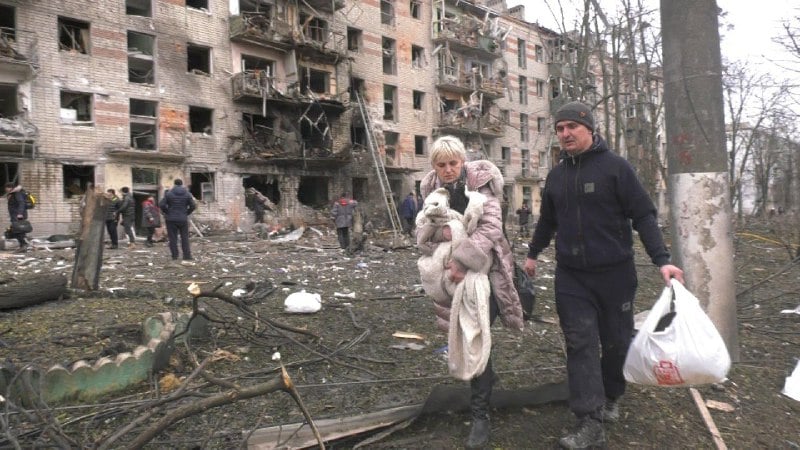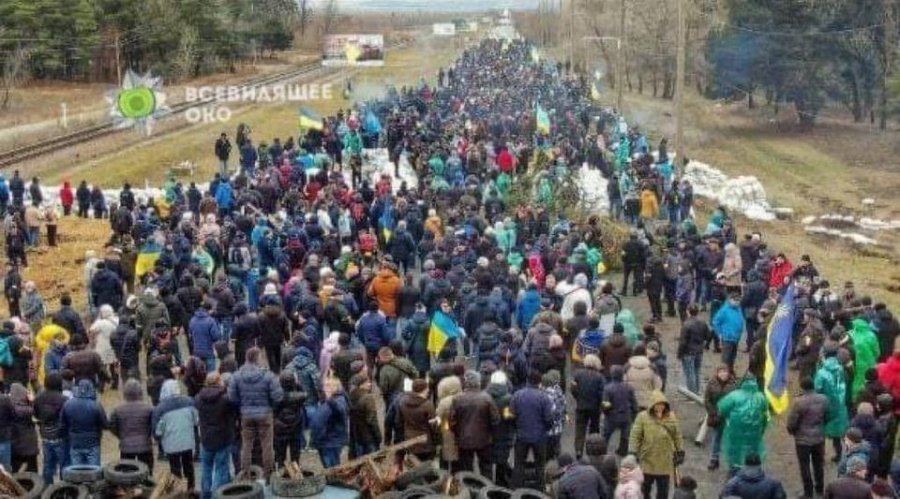
On 1 March, the European Court of Human Rights allowed an application from Ukraine and ordered that Russia cease any attacks on civilians and on civilian infrastructure, including kindergartens and hospitals. The ruling was exceptional in that the Court did not, as it normally does, order “both sides to refrain”, but specifically addressed the Russian Federation. Although the ruling is binding, Russia has continued its carnage and destruction, and appears to be deliberately targeting civilians.
As Ivan Lishchyna, Ukraine’s former Representative at the ECHR, points out, the ruling remains important even without Russian compliance Every bombed kindergarten, hospital or other strike on civilian infrastructure is now, as of 1 March, in direct contravention of the Court’s order.
For almost eight years, European and international courts were slow in reacting to Russia’s aggression against Ukraine. Russia’s invasion and military onslaught on 24 February appears to have changed that.
In the news release on 1 March, ECHR did not mince words. ““The Court has regard to the current military action which commenced on 24 February 2022 in various parts of Ukraine and considers that it gives rise to a real and continuing risk of serious violations of the Convention rights of the civilian population …”
In order to prevent such violations, the Court orders Russia “to refrain from military attacks against civilians and civilian objects, including residential premises, emergency vehicles and other specially protected civilian objects such as schools and hospitals, and to ensure immediately the safety of the medical establishments, personnel and emergency vehicles within the territory under attack or siege by Russian troops.”
Important also to note the statement issued by the International Criminal Court Prosecutor Karim Khan. As reported, by 25 February he had already expressed concern about “the events”, and on 28 February, he stated that he had “decided to proceed with opening an investigation into the Situation in Ukraine, as rapidly as possible.” As has been clear, even since, in December 2020, Khan’s predecessor found grounds for believing that war crimes and crimes against humanity, falling within ICC jurisdiction, “have been committed in the context of the situation in Ukraine”, the ICC moves slowly. On the other hand, Lithuania, which is a party to the Rome Statute, indicated immediately that it would be formally asking for the Court to investigate “the crimes of the Russian Federation and Belarus, committed and being committed in Ukraine”. As of late on 3 March, 38 countries have now referred Russia’s indiscriminate bombing and other war crimes to ICC, which should, which will, hopefully, expedite the proceedings.

Ukraine’s State Administration on Emergencies reported fairly early on 2 March that over two thousand civilians had been killed. The vast majority would have been victims of indiscriminate (or deliberate) targeting of apartment blocks; public buildings; schools; hospitals; etc.
Artem Semenikhin, Mayor of Konotop in the Sumy oblast reported on 2 March that they had been told that if they showed resistance, the Russian invaders would raze the city to the ground with artillery fire. He said he was in favour of fighting and asked who else was. “Of course, fight”, can be heard.
Kharkiv. Ukraine’s second-largest city, has been facing particularly savage airstrikes since early on 1 March, with massive destruction of administrative and residential parts of the city, and huge loss of life.
At very least 46 civilians have been killed in Kherson since the beginning of Russia’s invasion, although the real figure is likely to be much higher. A local activist reported on 2 March that Russians had become entering Kherson in the evening of 28 February, and that by 1 March, they were in all parts of the city. They had shelled residential buildings in in at least one part of the city and hit School No. 24.
The Mayor of Kherson has asserted that Ukraine remains in control of the city but that they urgently need a humanitarian corridor to evacuate people. They are also simply running out of food, etc.
It seems clear that one of Russian leader Vladimir Putin’s aims is to ensure that supplies of water are reinstated for Crimea. It was feared some time ago that Russia would resort to an invasion, and Russian state media reported on 26 February that the Russians had destroyed the dam blocking the Northern Crimea Canal.
Russia is committing grave war crimes by bombing and shelling civilian targets and is also using weapons which a huge number of countries prohibit. In reporting evidence of the use of cluster munitions, including on sites around schools and hospitals, Bellingcat pointed out that neither Russia nor Ukraine have actually banned such weapons. In fact, however, such cluster weapons which are aimed at significantly maximising death and destruction, are undoubtedly illegal everywhere when used against civilians.
According to Amnesty International, drone video footage around the Okhtyrka kindergarten which was bombed on 25 February showed that cluster munitions had struck at least seven locations on or around the building. Three people were killed during that attack, including one child. Another child was injured.
All of this and more is, as Ukraine’s President Volodymyr Zelensky said, unconcealed terror. It is no wonder that among the road signs that Ukrainians are erecting specially for the Russian invaders are many that show all roads leading to the International Criminal Court at the Hague. Ukraine is, however, fighting a powerful enemy and hopes of justice against the perpetrators sometime in the future are scarcely comforting. Ukrainians are fighting for their very existence and need help, including swift supplies of anti-aircraft and other weapons now.



